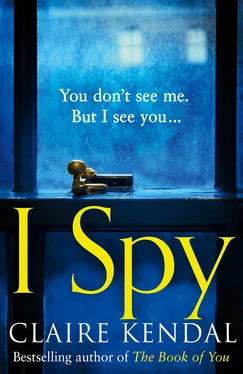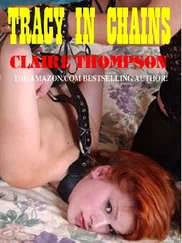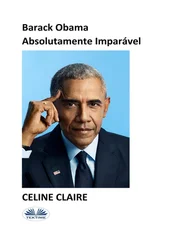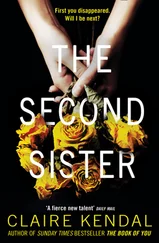I am on my knees, mopping coffee. I straighten up, so my shins are resting on linoleum that is printed to resemble a giant jigsaw puzzle, and my bottom is on my heels. The little girl is staring at me, pursing her lips as if she is about to blow out birthday candles. Her hair is the colour of copper, the same shade mine used to be before I soaked it in black dye. It is baby fine, and her mother has arranged the front in a ponytail-spout above her forehead, to keep it out of her eyes. The spout is a white jet, and adorable on this child, though I wonder if her hair colour is a symptom of whatever medical condition has brought her to the paediatric unit today. Her skin is ivory perfect, though perhaps a bit too pale.
I glance at the mum, whose own hair is dark and artfully highlighted. It reaches the bottom of her neck. She pushes it behind her ears and says to me, ‘Is that okay?
‘Absolutely,’ I say, and she follows Trudy.
The child is frowning, uncertain as she scans for her mother, who is now out of her sightline. I expect her to start to cry again, or scream, or kick. But she doesn’t do any of these things. She blinks her eyes several times, so I look more closely at them. They are surrounded by long, red-gold lashes that match my own, though I wear mascara to hide the colour. One eye is four-leaf clover green, again like mine. The other is blue as a dark sky in the top half-circle, and brown as the earth at the bottom. The only other person I have seen with such an eye is Zac. It is one of the most beautiful things about him. Again, though, I wonder if the child’s eye is a symptom of something medical, the same as her white forelock.
I fantasise about picking her up and holding her close, pretending that she is mine.
To others, I must appear to be a normal woman. I alone know that I am a creature stitched out of pieces that don’t fit and never will, with some of them missing and others stretched too thin and in the wrong shape. My seams show vivid and red like those of Frankenstein’s monster.
I say to the child. ‘You are very pretty. What’s your name?’
She opens her mouth, then smacks her lips together.
I laugh. ‘I bet your name is pretty too. Can you tell me how old you are?’
She shakes her head.
‘Let me try to guess. Are you two?’
She holds up one finger.
Her mother speaks over her shoulder to me while Trudy enters more details into the system. ‘Alice will be two next month.’
‘Ah.’ I throw a smile of thanks over my own shoulder. ‘So you are one right now, but nearly two. That is very big. And you’re so clever to count like that.’
She gives me a slow, serious nod of agreement.
‘So you are Alice. I knew you’d have an extra-pretty name. Do you come from Wonderland?’
Alice nods yes to this question and holds out the stuffed kitty, stretching both arms in front of her in one decisive move.
‘For me?’
Another nod.
I take the kitty and jiggle it until she laughs and snatches it back.
‘I love your dress, Alice.’ It is sunburst orange with pink and purple daisies.
Alice points to my head, and I remember that I took the white pom-pom from the Christmas hat Katarina gave me last December and tied it around my ponytail this morning. I touch the ball of fluffy yarn. ‘Do you like it?’
Alice nods, her eyes wide.
Alice’s mum returns, and I show her where she can wait with Alice. It’s the nicest part of the paediatric unit, with PVC-upholstered benches for parents and boxes of toys for children. As soon as she is freed from her buggy, Alice toddles off in her bright play dress to the toy oven, to make pretend cups of tea and bake pretend cakes, helped by her mum, who kneels beside her.
Trudy is preoccupied at the other end of the desk. The buzzer goes, signalling the arrival of a new patient. The last thing on Trudy’s mind is me – she has way too much to do, hitting the button to release the door lock, then signing in a little boy and answering his parents’ anxious questions.
I shouldn’t do it. I know it is irrational. But that eye. I have to check. A few keystrokes, and I have Alice’s computerised records on the screen. The address is on a very expensive street. When I see that her mother’s name is Eliza Wilmot I get an electric shock and my heart starts to beat faster.
Eliza was the name of a woman I glimpsed with Zac in a hotel bar on a horrible night two years ago. I never learned her surname. Is this the same Eliza? And the child. Could she be Zac’s? I shake my head at the possibility, then stop myself, self-conscious, though when I look around nobody is paying attention.
When I see that Alice was born on May eighteenth, just a few days after my own baby, I take a short, sharp breath. My throat tightens, and I am in the grip of grief and panic. There is a real risk I will cry. Last year, on May fourteenth, I pulled the comforter over my head and didn’t get out of bed at all. I think of my grandmother’s photo in the paper. Has Zac managed to find me, and dragged along a child I never knew about? The coincidences are too strong for me to imagine anything else.
I press on through Alice’s referral letter and medical notes. She has type 1 Waardenburg syndrome, which is a rare genetic condition that can cause hearing loss as well as changes to the pigmentation of the skin, hair, and eyes. So far, the medical notes say, Alice has three manifestations of the condition. The white forelock, the iris that is segmented into two different colours, and eyes that appear widely spaced, though in Alice the latter manifestation is so subtle I hadn’t noticed it. She is new to the area, and today is her initial appointment with the paediatrician who will be monitoring her. Tomorrow, I see, she is going to audiology for a hearing test.
For the first time, it occurs to me that Zac might have this condition, too. Could that be why he shaves his head, morning and night, to hide the white forelock? He led me to think the shaving was an aesthetic choice. That he preferred no hair at all to a bald spot. When I asked him about his eye, he said he was made that way. I try to picture his face. I think, though I am not certain, that perhaps his eyes, too, are a little widely spaced. But why would he keep the condition a secret, and try to cover it up, if he did have it? As soon as I silently pose the question, I know the answer. Zac hates anything that makes him appear vulnerable.
A sudden influx of newly arrived parents and children overwhelms me and Trudy. I catch sight of Alice’s mother, hovering nearby, handing Alice a biscuit and a sippy cup, then checking her phone. When the queue has finally cleared, she comes over to me. ‘Thank you so much for your help earlier.’
I give her an it-was-nothing shrug. Does she know who I am? Did Zac send her here? I can’t decide. The appointment is certainly genuine – Alice clearly needs it. I am praying my face isn’t drained of colour when I say, ‘Your daughter is gorgeous.’
‘She is, isn’t she?!’ Without looking at it, she grabs a flyer about MMR from a pile stacked on the counter, rummages in her bag for a pen, scribbles something on the flyer. ‘I’m Eliza. And this is Alice.’
It’s as if I have a hot sword running through the centre of my chest to the bottom of my stomach.
‘And you’re Helen, aren’t you?’ I nearly jump at her knowing my name, but then she lowers her voice and says, ‘The scary woman called you that.’
I manage a laugh. ‘Ah. Yes.’ I lift the flap in the reception counter to let myself through. I crouch in front of Alice. ‘Goodbye, Alice.’ I put out my hand, which she takes and shakes, imitating grown-ups. She holds her arms out, so that I lean closer in, and she giggles and tries to slide my glasses from my nose, then giggles some more. This child looks so like Zac, but his strong features are delicate and beautiful in her face.
Читать дальше












